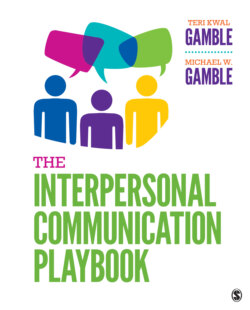Читать книгу The Interpersonal Communication Playbook - Teri Kwal Gamble - Страница 76
На сайте Литреса книга снята с продажи.
Self-Esteem and Personal Performance
ОглавлениеWhen self-esteem is not connected to personal performance, it can be self-defeating. Feeling good about yourself when you have no reason to—that is, when you have not added to your achievements or competencies—can lead to your developing a favorable self-appraisal that will not be matched by others’ views of you. Thus, when we talk about the importance of developing self-esteem, we are not talking about simple cheerleading. Rather, we are talking about opening yourself to opportunities that will help you develop your skills and abilities to their fullest potential.8
Belief in yourself shapes what is possible for you.
Photodisc/Photodisc/Thinkstock
And here’s a note of caution: Research reveals that individuals with high self-esteem may pose more of a threat to others than people with low self-esteem.9 In fact, research indicates that overemphasizing the importance of self-esteem in those who possess an unrealistically inflated self-appraisal can precipitate a culture of bullying. These findings have led some to argue for balance in the amount of praise given, to prevent inflated perceptions of self-importance in already self-centered individuals.10 Researchers advise that instead of fostering self-esteem, we should be fostering resilience, because resilience helps people recover from personal disappointments and defeats.11 By learning to cope with personal setbacks, we may help optimize our behavior.
